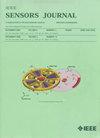An Adaptive SSUKF Based on Akaike Information Criterion to Optimize the Distribution Entropy of the Innovation
IF 4.3
2区 综合性期刊
Q1 ENGINEERING, ELECTRICAL & ELECTRONIC
引用次数: 0
Abstract
At present, integrating the Global Navigation Satellite System (GNSS), microelectromechanical system (MEMS), and odometer (OD) is the most practical and low-cost vehicle multifusion navigation system. However, time-varying noise due to satellite signal rejection can lead to serious degradation or even inaccurate positioning accuracy of the system. To overcome this problem, an adaptive spherical simplex unscented Kalman filter (SSUKF), which optimizes the distribution entropy of the innovation based on the Akaike information criterion, is proposed. Initially, the algorithm optimizes the distribution entropy of the SSUKF innovation sequences by considering the Akaike information criterion. Subsequently, it constructs a dynamic equation of the sliding window using the residual and innovative sequences based on covariance matching. Furthermore, the algorithm estimates and adjusts the statistical characteristics of the systematic process and measurement noise online and improves the adaptive ability of the SSUKF. The algorithm overcomes the problem of degradation and dispersion of the filtration accuracy of the SSUKF when there are unknown, inaccurate, or uncertain noise statistics. Finally, simulation and integrated navigation of actual tests were performed. The test outcomes indicate that the proposed algorithm reduces the errors of the east and north velocities by 67.76% and 70.29%, respectively, with root mean square error (RMSE) values of 0.1449 and 0.1308 m/s, respectively. Additionally, when compared to the SSUKF, the proposed algorithm reduces the errors of the latitude and longitude by 56.55% and 81.78%, respectively, with RMSE values of 3.1072 and 1.6076 m, respectively.基于Akaike信息准则的自适应SSUKF优化创新分布熵
目前,将全球卫星导航系统(GNSS)、微机电系统(MEMS)和里程表(OD)相结合是最实用、成本最低的车载多融合导航系统。然而,由于卫星信号抑制引起的时变噪声会导致系统定位精度严重下降甚至不准确。为了克服这一问题,提出了一种基于赤池信息准则的自适应球面单纯形无气味卡尔曼滤波器(SSUKF),优化了创新的分布熵。该算法首先考虑Akaike信息准则,对SSUKF创新序列的分布熵进行优化。然后,利用残差序列和基于协方差匹配的创新序列构建滑动窗口的动态方程。此外,该算法在线估计和调整了系统过程和测量噪声的统计特性,提高了SSUKF的自适应能力。该算法克服了在存在未知、不准确或不确定噪声统计量时,SSUKF滤波精度下降和分散的问题。最后,对实际试验进行了仿真和组合导航。试验结果表明,该算法将东、北速度的误差分别降低了67.76%和70.29%,均方根误差(RMSE)分别为0.1449和0.1308 m/s。此外,与SSUKF相比,该算法将纬度和经度误差分别降低了56.55%和81.78%,RMSE值分别为3.1072和1.6076 m。
本文章由计算机程序翻译,如有差异,请以英文原文为准。
求助全文
约1分钟内获得全文
求助全文
来源期刊

IEEE Sensors Journal
工程技术-工程:电子与电气
CiteScore
7.70
自引率
14.00%
发文量
2058
审稿时长
5.2 months
期刊介绍:
The fields of interest of the IEEE Sensors Journal are the theory, design , fabrication, manufacturing and applications of devices for sensing and transducing physical, chemical and biological phenomena, with emphasis on the electronics and physics aspect of sensors and integrated sensors-actuators. IEEE Sensors Journal deals with the following:
-Sensor Phenomenology, Modelling, and Evaluation
-Sensor Materials, Processing, and Fabrication
-Chemical and Gas Sensors
-Microfluidics and Biosensors
-Optical Sensors
-Physical Sensors: Temperature, Mechanical, Magnetic, and others
-Acoustic and Ultrasonic Sensors
-Sensor Packaging
-Sensor Networks
-Sensor Applications
-Sensor Systems: Signals, Processing, and Interfaces
-Actuators and Sensor Power Systems
-Sensor Signal Processing for high precision and stability (amplification, filtering, linearization, modulation/demodulation) and under harsh conditions (EMC, radiation, humidity, temperature); energy consumption/harvesting
-Sensor Data Processing (soft computing with sensor data, e.g., pattern recognition, machine learning, evolutionary computation; sensor data fusion, processing of wave e.g., electromagnetic and acoustic; and non-wave, e.g., chemical, gravity, particle, thermal, radiative and non-radiative sensor data, detection, estimation and classification based on sensor data)
-Sensors in Industrial Practice
 求助内容:
求助内容: 应助结果提醒方式:
应助结果提醒方式:


